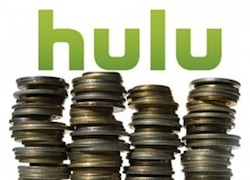 The internet and entertainment industries are all abuzz because “people familiar with the matter” told the Wall Street Journal Hulu is considering selling itself after being approached with an unsolicited offer. That unsolicited offer may or may not have come from Yahoo, but regardless of who made it, it reportedly caused Hulu’s board to do some soliciting of its own and gauge interest about a sale to a private equity firms or other large company.
The internet and entertainment industries are all abuzz because “people familiar with the matter” told the Wall Street Journal Hulu is considering selling itself after being approached with an unsolicited offer. That unsolicited offer may or may not have come from Yahoo, but regardless of who made it, it reportedly caused Hulu’s board to do some soliciting of its own and gauge interest about a sale to a private equity firms or other large company.
Janko Roettgers at GigaOm put together a comprehensive list of possible Hulu buyers and Will Richmond at VideoNuze wrote up a great post about why Hulu can’t possibly sell to any of them. Hulu’s greatest asset is its “exclusive next-day distribution deals with its studio/broadcast TV network owners.” The value of the premium, on demand, streaming video service is in its content (and, to a certain degree, its ability to monetize the heck out of that content) and the reason Hulu gets content deals par excellence from News Corporation, Disney, and NBC is because those entertainment conglomerates have a stake in the company. If Hulu is sold, there’s no inherent incentive for its owners to continue with favorable distribution terms.
But, the fact that Hulu is owned by three separate and competing global entertainment corporations is exactly the reason the company should consider selling itself. There are too many executives sitting in the corner office with decision-making influence or power and seemingly congruent, but probably conflicting agendas.

Subscribe for daily Tubefilter Top Stories
Obviously, I’m not privy to what goes on in the Hulu board room, but from the vantage point of someone who pays attention to these things, it seems like Hulu CEO Jason Kilar has had his fair share of headaches and battles with Hulu’s investors. (Part of the reported reason Hulu recently dropped its plans for an IPO was because its owners couldn’t decide on the company’s strategy.) Despite (or maybe because of) Kilar’s difference of opinion with the Hulu powers that be, he’s been able to make the company profitable and on pace to make $500 million in revenue by the end of 2011.
So, what’s Hulu to do? Should it sell to the highest bidder and do its best to maintain as many favorable distribution contracts as possible? Or does it stay the course and run the risk of becoming the MySpace to Netflix’s (or some other company’s) Facebook due to too much friction at the top. I don’t know! But it’ll be interesting to see what happens next.








